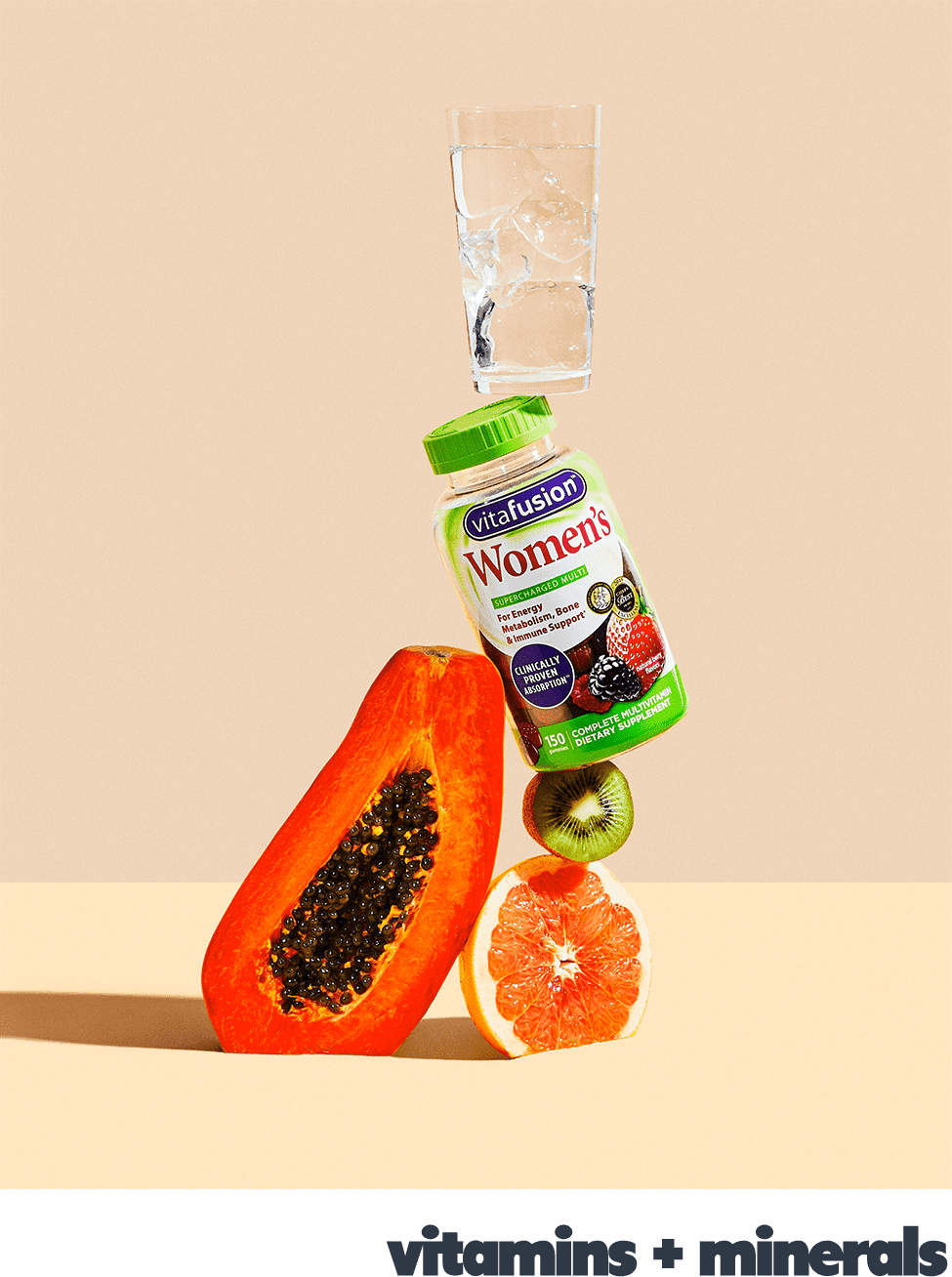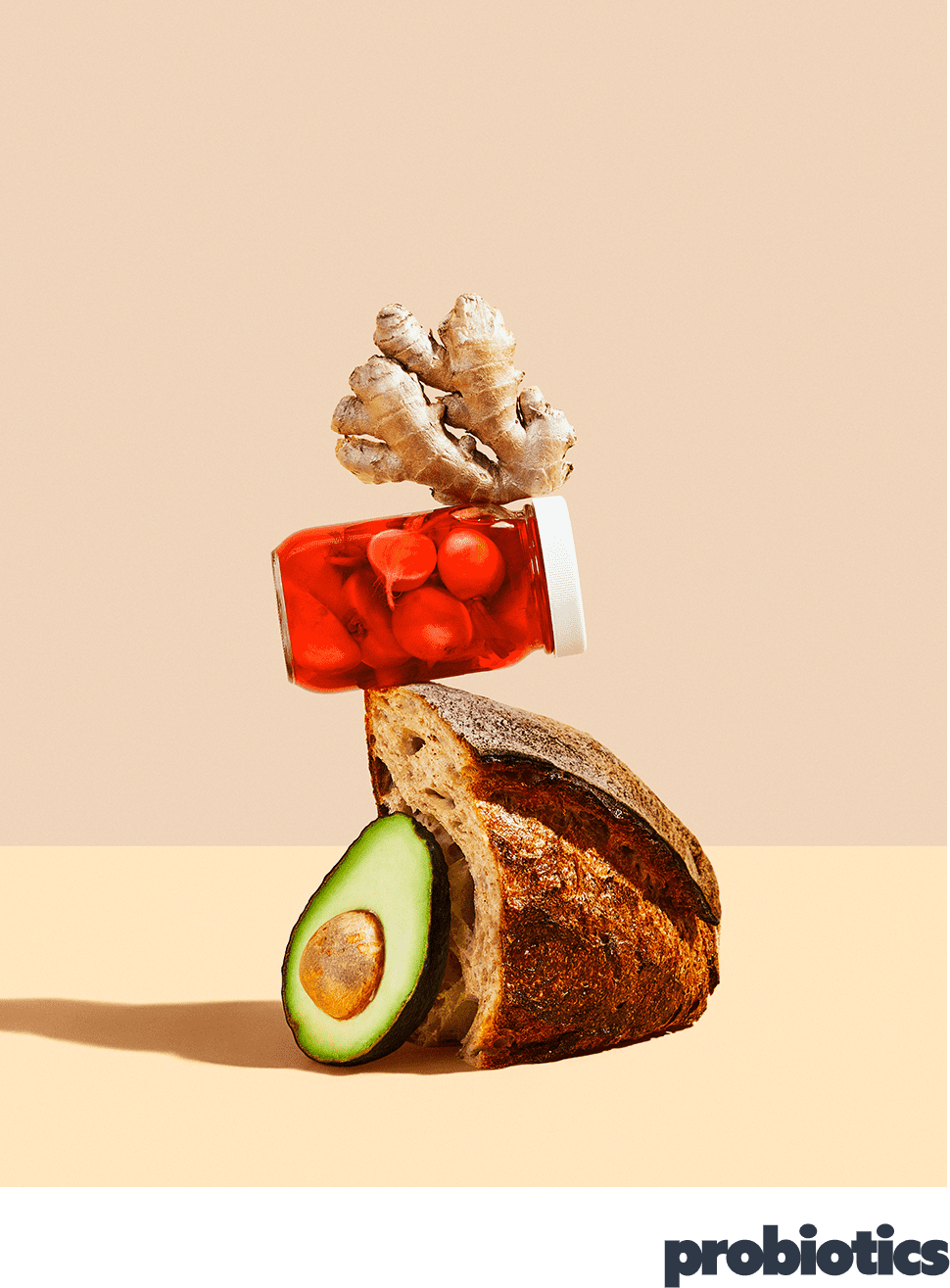

You know the saying: "You are what you eat." Sure, it's a little cliché, but the underlying idea does ring true — what you put into your body affects how you feel overall, and thus, how you live your life. Think about the last time you spent a weekend YOLO-ing and eating a bunch of fried and/or greasy foods. You probably felt sluggish, perhaps had a little skin breakout, or had some stomach upset when all was said and done. Food equals mood, people!
That's not to say that you should never indulge (because, seriously, what is life without fries?). Rather, you want to set your body up for success so you can go a little ham sometimes. That means taking the time in your normal day-to-day to nourish your body — after all, you get out what you put in, amirite?

Names of vitamins and minerals are often thrown around without us really knowing what they're used for or how they impact our health. So let's start with the basics: Vitamins are produced by plants and animals (in other words, organic material) and are the essential building blocks our bodies need to sustain life, and make sure our cells are functioning properly. Minerals are inorganic and come from rocks, soil, or water — humans absorb them by eating a plant or animal that has lived in that environment. Think: calcium, magnesium, potassium, and iron.
Vitamins B, C, D, and E are probably the most commonly talked about, so here's a quick breakdown of what they do.
- B vitamins can help you support the conversion of food to fuel.
- Vitamin C is most commonly found in citrus fruits like oranges. It plays a role in supporting healthy immune function.
- Vitamin D is an essential nutrient needed to support your bones and immune system.
- Vitamin E is a powerful antioxidant that helps your cells fight off free radicals.
Phew! So how do you make sure you're getting all the vitamins you need? Start by making it a habit to include a multivitamin into your daily routine. vitafusion Women's Multivitamin Gummy Vitamins provide the backbone to a healthy lifestyle, and is specially formulated for the needs of women. You'll get all the essentials: Vitamin A (an important part of your everyday diet), C, and D, as well as calcium; plus, they're made with natural fruit flavors and are a real treat to eat.
A diet rich in vitamins and minerals should also be at the top of your list — incorporate fruits like grapefruit, papaya, kiwi, oranges, and mangoes, leafy green vegetables and root vegetables, and legumes. And perhaps most importantly, don't forget to hydrate!

Incorporating foods with probiotics will be a game changer, especially for those of you interested in gut health. Probiotics are live microorganisms (aka good bacteria) that help maintain a healthy microbiome, or the community of microorganisms that naturally live in your body. Without getting too in-depth, the microbiome plays a major role in making sure the daily operations of the human body go smoothly, and probiotics help keep your microbiome happy. Get it?
While you can definitely take probiotic supplements, an easy way to get what you need is by eating particular foods. Anything fermented like kimchi, pickled veggies, sauerkraut, kombucha, yogurt, miso, kefir, tempeh, and even sourdough bread contain helpful probiotics that could support digestive and/or immune health.

Everyone knows that getting enough protein in your diet is key to health and wellness — the body uses it to build and repair tissues and make enzymes and hormones. Plus, it's an essential building block of bones, muscles, cartilage, skin, and blood. Of course, there is the traditional source of protein: meat, especially red meat. But if you're trying to stay away from the stuff (hello, heart disease), there are other delicious ways to get your daily dose of protein. If you're not a vegan or vegetarian, think about chicken and turkey breasts and fish like salmon, tuna, halibut, and cod. Plus, eggs — especially the whites — are chock full of protein. Vegans can opt for things like tofu, lentils, chickpeas and beans, nuts and nut butters, and chia seeds.
Antioxidants are important for overall health because they fight oxidative stress in the body. Luckily, some of the most delicious foods out there contain tons of antioxidants. The list includes blueberries, raspberries, strawberries, blackberries (yay for berries!), red grapes, artichokes, dark chocolate (!!), beans, plums, dark leafy greens, and pecans. Health never tasted so good.